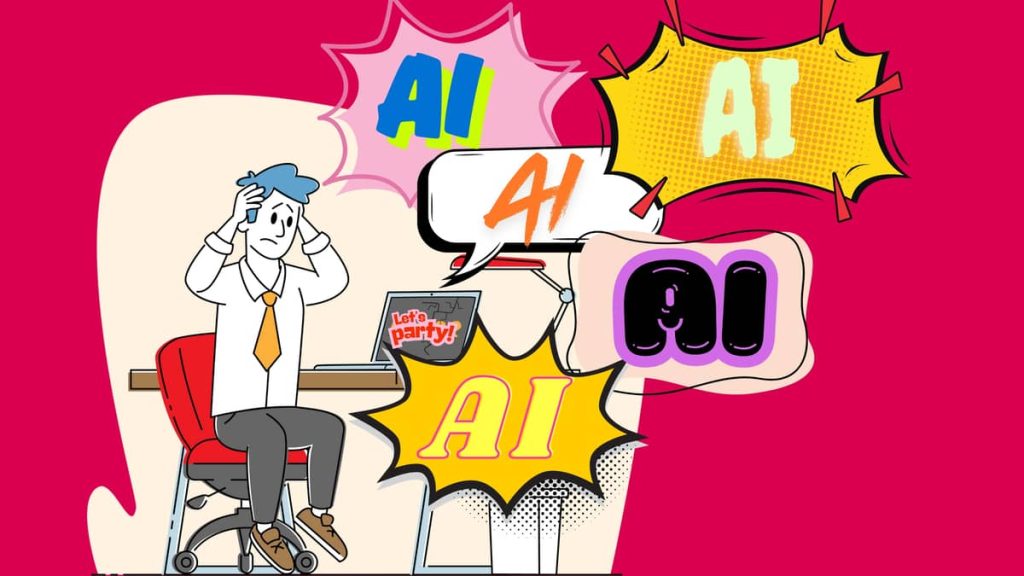AI Mode allows people to ask long-tail queries like ‘what are the best plants to put in a shaded area that can also be dry’ and ‘what food did Elvis Presley eat when he lived in Memphis and when is the best to visit the places where he at’.
Artificial intelligence is good at such searches that traditional search would probably have failed to deliver accurately. Such searches are common on platforms like Perplexity.
But there are drawbacks. When the queries are answered, the reference points are shown on the right but the number of links are limited. Further, many of the links that are shown (which are also referred to in the AI-generated answer) are not always from sources we are familiar with.
What are the long-term effects of AI Mode search?
The search results may have an impact on shopping-related queries. For example, if you were to ask AI Mode to show you the best five phones between 20-30K in the colour gold, the results may not be of the highest quality. At times, certain products are mentioned in the answer but you can’t directly click through to go to that product, even if that meant going to the official site. That may change in the coming days because there have been talks where AI agents can help make purchases.
It’s interesting to make the same searches in regular search mode. The phones that we asked for will be shown at the top, with links. AI Overviews does a reasonably good job in answering the query in short. The organic results below AI Overviews is far stronger, like comments on Reddit or links to trusted websites with articles on the subject. But it takes time to visit each link individually. It’s human nature to fall back on gists, which the AI Mode offers.
Some brands may see huge growth by optimizing for AI Mode but some brands may fall behind. In our case, the companies that sell smartphones as well as banks that offer EMI schemes can benefit from AI Mode search. There is potential because you may go from asking a basic question to doing your research and making a purchase. Everything happens in the same window. Traditionally, it may have taken you a long time because you would have had to visit all the websites in question to arrive on an answer. Further, traditional websites don’t always update articles with the latest information.
The new search mode uses a “query fan out” technique in which your query is broken down into many parts but you won’t get to see the breakup. All you see are relevant results, all put together like a summary.
Like ChatGPT, you can go back and forth while asking queries, which makes it a friendly tool.
Are AI Mode search results correct?
If what you have asked AI Mode is a general query, chances of the answers being correct is high but once you get into specifics, like ‘suggest the best places in Calcutta to buy gramophone needles for my 1978 Sony turntable’, things are on shaky ground. You may either get few results, outdated search results or just a general overview that may not of much use.
The feature is in the testing phase but more AI Mode is used, chances of it improving increases.
You can’t trust the results when it comes to topics like politics, health, finance or legal advice. You don’t want to be in a soup by taking AI-generated results. What it can do is offer you a few suggestions and then you can explore the same. Also, AI tools keep learning from new data and even though Google claims it anonymizes inputs, how far can you trust a Big Tech company? Be cautious when it comes to feeding personal questions, like mental health or personal finances.
How do I use AI Mode?
The feature was first available in the US and can now be accessed in India. It is part of Search Labs. Key in ‘Search Labs’ on Chrome browser and visit the page to subscribe to the feature. Alternately, you can access it through Google App.
Can I benefit from AI Mode?
If you are a student in a hurry and some research needs to be done, AI Mode can be of help but the question you need to ask yourself is: Will it be ethical to make AI complete my homework?
What are the ways I can search on Google?
At the moment, there are three ways — the new AI mode, traditional Google search box with AI answer summaries and the Google chatbot Gemini. There is also a fourth way, which has immense potential: Point the phone camera at an object and ask what you see on the screen. For example, the new shirt your colleague is wearing, which is turning heads in office.
Some of the AI-powered search tools can help find results that you may not have found traditionally… at least not easily. But the downside is accuracy is an issue.
What’s the AI model that is being used for AI Mode?
Using a custom version of Gemini 2.5, Google says it is letting you ask longer, more complex or nuanced questions that would have previously required multiple searches. Early testers of AI Mode are asking much longer queries — 2-3x the length of traditional searches — showing that “people are already using it for their toughest questions”.

